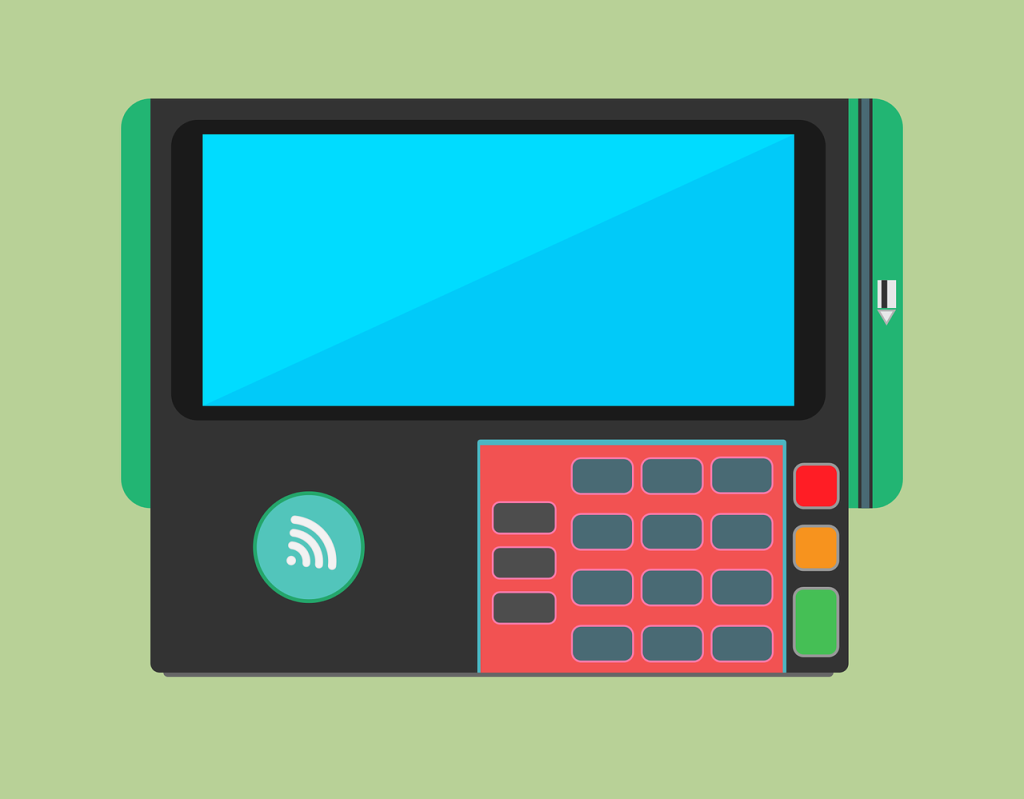A payment gateway is a service that enables an online transaction between the user and the merchant. It provides an interface between web-based systems of the merchant and the user’s payment processor to securely complete a financial transaction such as credit/debit card payments, e-wallet payments, etc. The payment gateway is responsible for encrypting sensitive information and carrying out other security checks related to the payment process.
Payment gateways are essential to doing business online and providing customers with a safe and secure way to purchase. Choosing the right payment gateway can be a complex task. However, if you’re a consumer looking for convenient ways to pay or a merchant looking to expand your reach into new markets, read on as we explore the fantastic benefits of a payment gateway!
Market potential of payment gateways
A report by Statista indicates that as of 2022, cash was the primary payment method used in online retail in Egypt, Nigeria, and South Africa, accounting for 67%, 66%, and 40% of the total, respectively. On the other hand, cash was less prevalent in Kenya, where 44% of e-commerce payments occurred by card and 19% by bank transfer. In Morocco, most digital buyers used card-based payments (37%) and bank transfers (26%). Despite country-specific differences, cash remains the leading payment method in Africa.
Latest data by GSMA also indicates that there were there were 5.4 billion unique mobile subscribers in 2022, rising to 6.3 billion by 2030. The study suggests that India and Sub-Saharan Africa will account for around half of new mobile subscribers globally over the 2022–2030 period. Nonetheless, only a limited number of people in Africa have bank accounts with payment gateways expected to become a powerful means of payments.

Key players in the payment gateway industry
The payments industry is a constantly evolving space that requires innovation, adaptability, and expertise. In addition, it’s vital to stay up-to-date with the key players involved in the process flow. Below is a list of key players involved with payments:
- Merchant: A merchant is a business that uses a payment gateway to process credit card and electronic check transactions. A payment gateway allows a merchant to accept online payments and deposit the funds into their bank account.
- Customer: An individual or a business that uses the provider’s platform to make a one-time payment, such as when paying a utility bill or purchasing on a website that does not accept traditional payment methods.
- The issuing bank: The financial institution that provides the funds for the transaction. In Africa, there are many issuing banks that offer payment gateway services.
- The acquiring bank: This is the bank that will handle the transaction and deposit the funds into the merchant’s account.
- Payment gateway: A payment gateway is an e-commerce application service provider that authorizes payments between a merchant and the customer, typically for an online retailer.
- Card Network: A card network is a system that allows the processing of electronic monetary transactions between banks, financial institutions, and merchants.

How does a payment gateway work?
Below is a process flow that best illustrates how a payment gateway works:
Step 1: A customer initiates a transaction. Customers enter their credit card information on the merchant’s website or mobile app to start the payment process. Their data is forwarded to the payment gateway and routed to the payment processor.
Step 2: The payment processor verifies the credit card information and authorizes the transaction. To do this, the payment processor must contact the customer’s bank and get approval for the purchase.
Step 3: After the payment processor confirms the transaction, it sends a message to the payment gateway. The payment gateway then transmits another message confirming the transaction to the merchant.
Step 4: The merchant then fulfils the customer’s order by shipping the customer’s items or providing them with the purchased services.
Step 5: The payment processor sends another message to the merchant’s payment gateway. This message contains the customer’s payment information, such as the amount paid, the customer’s credit card details, and the transaction date.
Step 6: The payment gateway then securely transfers the payment information to the merchant’s bank account and updates the merchant’s records with the payment details.
Step 7: Finally, the payment processor sends the customer a receipt of the transaction, including the amount paid and the purchase details.

Security features of a payment gateway
Payment gateways use various security features to protect customers’ online data:
- Encryption – Payment gateway providers use powerful encryption technology to protect customers’ sensitive data. Equally important, this encryption helps ensure that no one can access the data except for the customer and the merchant.
- Data Storage – Secure payment gateways store customer data on their servers instead of the merchant’s server. Data storage on servers adds an extra layer of security against potential data breaches.
- Fraud Detection – Payment gateways have advanced detection systems that analyze customer transactions and alert merchants to suspicious activity.
- Authentication – Payment gateways may require customers to authenticate their identity before purchasing, such as providing a one-time PIN or entering a username and password. Authentication helps to reduce the risk of unauthorized purchase
- Authorization – Payment gateways also require merchants to authorize any transactions before processing. Authorization ensures that only legitimate and approved payments are processed and prevents the merchant from being held liable for fraudulent charges.

Benefits of a payment gateway
Payment gateways offer numerous advantages, from enhanced financial inclusion and accepting secure online payments to a boost in economic activity. A payment gateway provides businesses with the following benefits:
1. Convenience – Payment gateways make it easy for customers to securely purchase goods and services online without entering their credit card information each time.
2. Speed – Payment gateways also help reduce checkout time, allowing customers to quickly and easily complete their purchases without waiting for the traditional credit card authorization process.
3. Security – With payment gateways, it’s possible to store customer data on secure servers rather than the merchant’s servers, reducing the risk of a data breach. Additionally, payment gateways come with advanced fraud detection systems to protect merchants from fraudulent charges.
4. Global Reach – Payment gateways allow customers worldwide to purchase goods or services online, opening up new markets for merchants.
5. Recurring Billing – Payment gateways also enable merchants to offer subscription-based services, allowing customers to pay for access regularly. Besides that, these services help merchants to automate their billing process and increase their revenue.
Choosing the best payment gateway for your business
Here are some tips on choosing the right payment gateway for your business:
1. Different Research Providers – Take the time to research different payment gateway providers. Consider their fees and features and ensure they meet your business’s needs.
2. Consider Your Target Market – Consider the countries and currencies your target market will use for payments. Make sure the payment gateway you choose supports these currencies.
3. Understand Fees – Understand the fees associated with your chosen payment gateway. Compare different providers to make sure you’re getting the best deal.
4. Test it Out – Once you’ve chosen a payment gateway, test it with a few transactions to ensure it works properly. Testing will help you ensure that your customers have a smooth checkout experience.
Conclusion
Tingg has demonstrated exceptional performance in the payments industry, and we remain dedicated to providing our clients with cutting-edge products and services. We address fragmentation in payment processing for businesses through Tingg, our digital payments platform enabling companies across Africa to accept payments from their customers seamlessly. As a result, businesses can allow their customers to make payments for goods and services using locally relevant payment options.
Are you looking to increase your revenue with reliable payment services? Our knowledgeable team can help you get started accepting payments online immediately!






